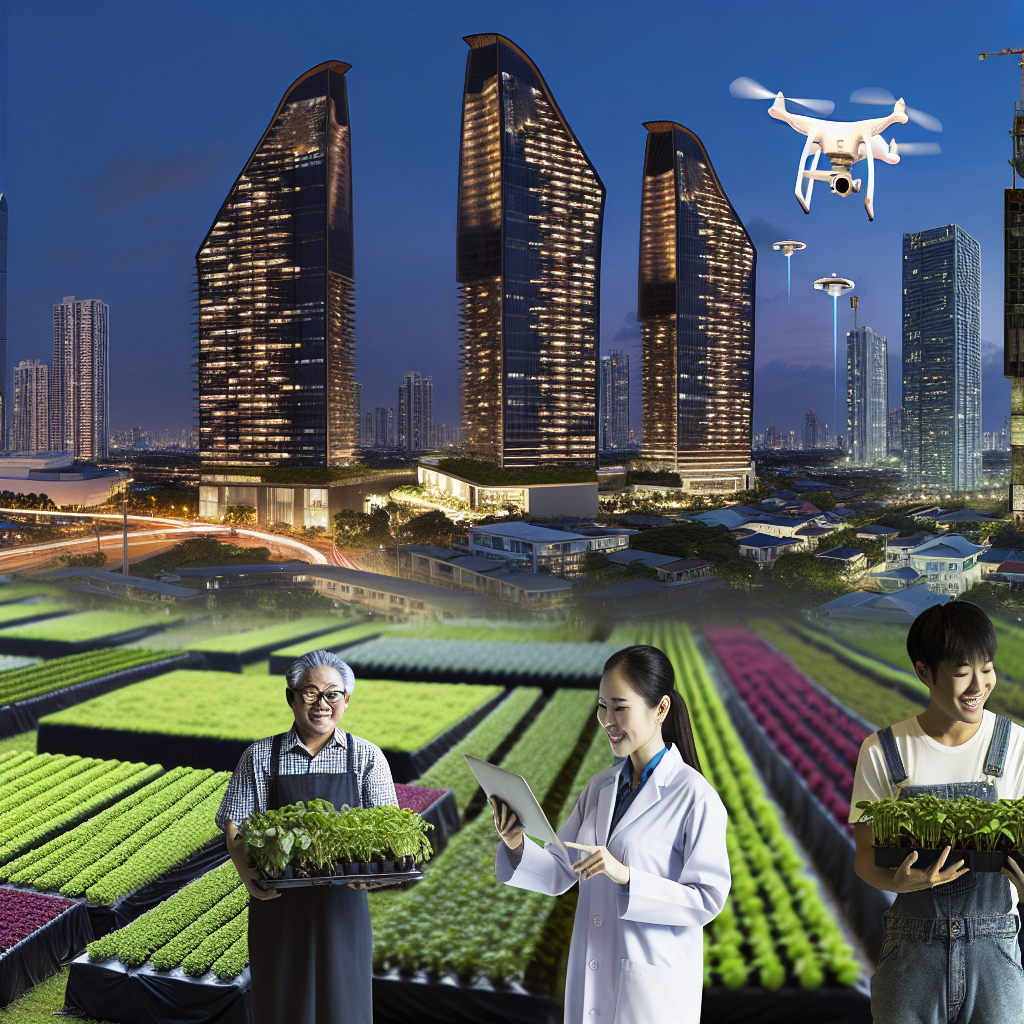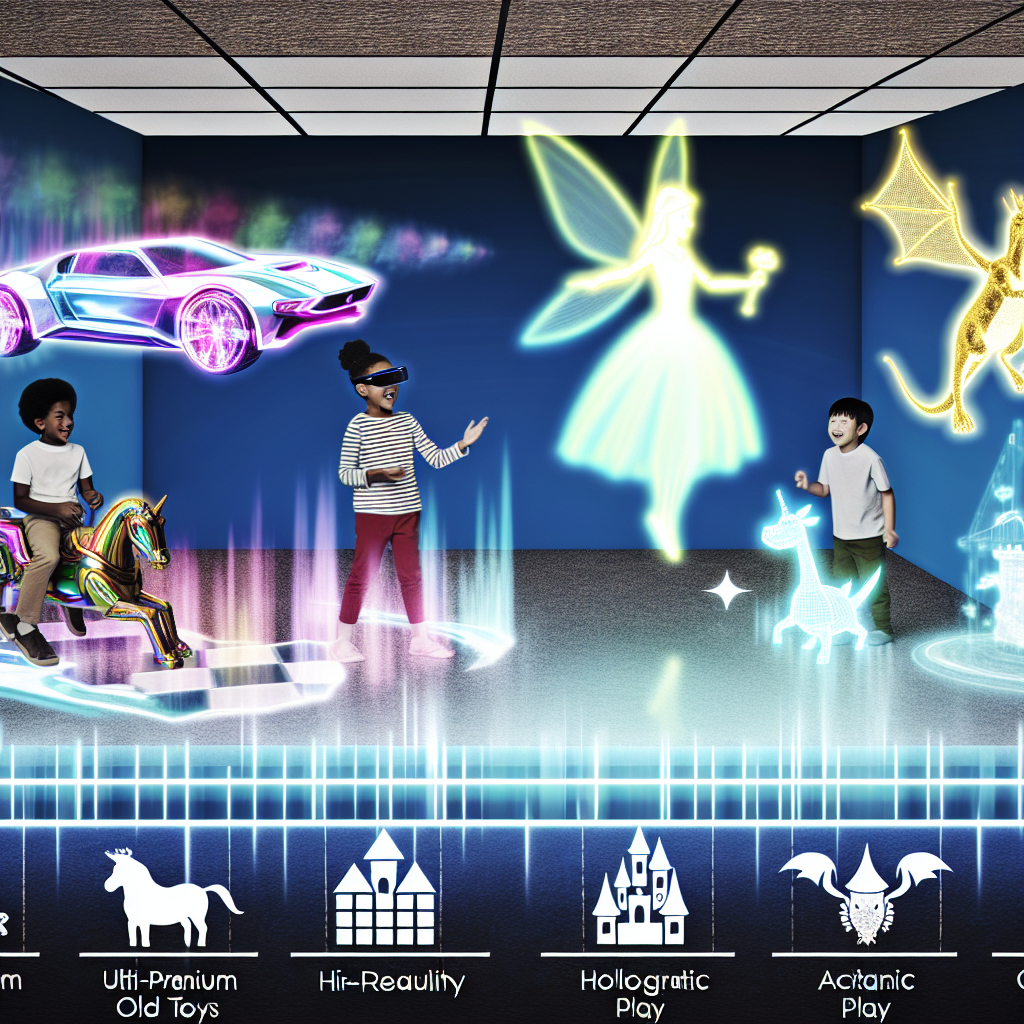Urban Farming Tech: Luxury Residences Growing Next-Gen Agriculturists
Introduction: The Rise of Urban Farming in Luxury Homes
Urban farming is no longer just a sustainability trend; it is evolving into a sophisticated lifestyle choice among affluent families. As innovation reshapes the way we grow food in cities, cutting-edge farming technologies are integrating into luxury residences, offering families an exclusive opportunity to foster knowledge, sustainability, and wellness. Visionary parents are increasingly recognizing the value of urban farming—not just for exceptional nutrition, but as an investment in their children’s education and future.
Urban farming within luxury residences now includes high-tech indoor gardens, hydroponic greenhouses, and AI-powered precision farming systems that allow families to cultivate fresh produce year-round. Advances in controlled-environment agriculture (CEA) enable crops to thrive indoors with minimal soil, efficient water use, and optimal light. It is this level of precision and sustainability that is elevating urban farming into an asset of luxury homes. Families are harnessing these innovations to provide organic, pesticide-free food while teaching children the fundamentals of modern agriculture and sustainability.
Beyond health benefits, luxury urban farming introduces children to the next frontier of agricultural technology. With climate change and food security concerns shaping future industries, offering children hands-on experience with sustainable food cultivation is an invaluable opportunity. Experts predict that controlled-environment farming will redefine the food supply chain in the coming decades, making it an essential skill for young innovators and future entrepreneurs.
Leading real estate developers have taken note of this shift. High-end residential communities now feature built-in hydroponic farms, aeroponic towers, and robotic gardening assistants, ensuring that families—particularly in urban landscapes—can actively engage in agriculture without compromising luxury or convenience. Residents can harvest arugula, microgreens, strawberries, and more within steps of their gourmet kitchens, redefining organic living.
The rise of urban farming in elite properties is more than a design trend; it is a paradigm shift offering forward-thinking parents the chance to instill environmental stewardship, technological literacy, and food security awareness in their children. As luxury and sustainability intersect, these self-contained farming systems empower young minds to reimagine the future of agriculture—one smart, homegrown crop at a time.
The Science-Backed Benefits of Urban Farming for Families
Scientific studies underscore the immense educational and health-related advantages of integrating urban farming into residential spaces. Research on controlled-environment agriculture and child development reveals that these initiatives significantly impact cognitive growth, sustainability awareness, and dietary habits.
Boosting Cognitive and Scientific Curiosity Through Farming
According to a 2021 study published in Frontiers in Psychology, hands-on agricultural experiences enhance cognitive development in children by stimulating problem-solving skills, motor function, and environmental consciousness ([Frontiers in Psychology, 2021](https://www.frontiersin.org/articles/10.3389/fpsyg.2021.661552/full)). The research found that children who engage in growing their own food exhibit increased scientific proficiency, curiosity about ecosystems, and stronger emotional connections to nature.
Encouraging Healthy Eating Habits with Homegrown Produce
Another study by Johns Hopkins University highlights the nutritional benefits of homegrown produce, demonstrating that children who participate in gardening programs are more inclined to consume fruits and vegetables regularly ([Johns Hopkins, 2019](https://hub.jhu.edu/2019/06/06/gardening-kids-healthy-food/)). Additionally, urban farming reduces the risk of exposure to harmful pesticides and preservatives found in commercially sourced produce. Families practicing home agriculture can also mitigate common foodborne illnesses, providing their children with a safe and nutrient-rich diet.
Mental Health Benefits: Less Stress, More Responsibility
From a mental health perspective, research in Environmental Health and Preventive Medicine (2020) confirms that indoor gardening reduces childhood stress and enhances well-being ([Environmental Health and Preventive Medicine, 2020](https://environhealthprevmed.biomedcentral.com/articles/10.1186/s12199-020-00923-8)). Gardening has been linked to decreased anxiety levels, strengthened emotional resilience, and a greater sense of responsibility among young participants. In high-tech settings, AI-driven farming further refines this experience, allowing children to track plant growth, understand resource efficiency, and experiment with data-driven approaches to farming.
Environmental Impact: Sustainability at Home
Additionally, The United Nations’ Food and Agriculture Organization (FAO) acknowledges controlled-environment agriculture as a critical advancement in global food sustainability ([FAO, 2023](https://www.fao.org/3/cb7314en/cb7314en.pdf)). Innovations in hydroponics and aeroponics can reduce water consumption by up to 90% compared to traditional farming, demonstrating the environmental benefits of teaching children smarter farming methods. By growing food indoors, luxury residences also contribute to urban resilience, lowering dependence on long-distance food supply chains while reducing carbon footprints.
The combination of urban farming, luxury, and cutting-edge technology creates a multi-faceted advantage for children. Exposure to sustainable agriculture fosters scientific curiosity, improves dietary habits, and cultivates environmental responsibility—all within the comfort of an elite home environment. With smart farming innovations becoming an integral part of modern residences, children of means are gaining a competitive edge in ecological awareness, innovation, and self-sufficiency.
Conclusion: A Future Cultivated in Luxury and Sustainability
The fusion of luxury living and urban farming technology represents more than an aesthetic lifestyle choice—it is an investment in future generations. By integrating hydroponics, AI-driven plant care, and controlled-environment agriculture into their homes, visionary parents are equipping their children with essential skills for a rapidly evolving world. As sustainability and innovation converge, these young agriculturalists will emerge not only with an appreciation for fresh, homegrown food but also with an advanced understanding of ecological responsibility and food security. In high-end urban residences, the future of farming is being cultivated—one nutrient-rich, technologically enhanced harvest at a time.
Concise Summary:
Urban farming is becoming a sophisticated lifestyle choice in luxury homes, with cutting-edge technologies like hydroponics, AI-powered precision farming, and controlled-environment agriculture allowing families to grow fresh, sustainable produce. This trend offers children hands-on experience with the future of agriculture, fostering scientific curiosity, healthy eating habits, and environmental responsibility – all within the comfort of an elite home setting.
References:
[Frontiers in Psychology, 2021](https://www.frontiersin.org/articles/10.3389/fpsyg.2021.661552/full)
[Johns Hopkins University, 2019](https://hub.jhu.edu/2019/06/06/gardening-kids-healthy-food/)
[Environmental Health and Preventive Medicine, 2020](https://environhealthprevmed.biomedcentral.com/articles/10.1186/s12199-020-00923-8)
[Food and Agriculture Organization (FAO), 2023](https://www.fao.org/3/cb7314en/cb7314en.pdf)

Dominic E. is a passionate filmmaker navigating the exciting intersection of art and science. By day, he delves into the complexities of the human body as a full-time medical writer, meticulously translating intricate medical concepts into accessible and engaging narratives. By night, he explores the boundless realm of cinematic storytelling, crafting narratives that evoke emotion and challenge perspectives. Film Student and Full-time Medical Writer for ContentVendor.com



